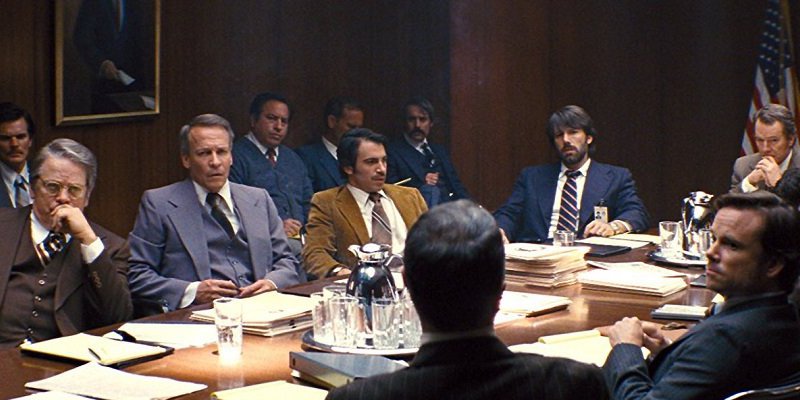-

Will bots break our ability to use the Internet for debate?
Millions of robot-generated responses to the Federal Communications Commission’s comment system for net neutrality may be a sign that agencies need to move now to preserve useful public debate.
-

Depending on where you live, it can be really difficult to get a rape kit
After hearing stories of women having to travel long distances to receive the rape kit exams that are guaranteed to them under the Violence Against Women Act, we began to file the same request with the health departments in all 50 states asking for locations where sexual assault forensic examiners are available on staff or on-call. Like most of the other data surrounding sexual assault policies, what we’ve found so far varies widely, and there are large deserts - huge, mostly rural areas without easy access to a medical examiner
-

FBI appears to have investigated - and considered prosecuting - FOIA requesters
A recent FOIA release shows the Federal Bureau of Investigation’s Director’s Office responded to FOIA requests for known files on deceased FBI officials by presenting options that seemingly included a law enforcement investigation/proceeding against the requesters, with one email calling the requests “SUSPICIOUS.”
-

Miami Police releases a single row of a nearly 100 page spreadsheet
A few weeks back, I filed with the ten largest police departments in the country for a list of all sexual harassment complaints or lawsuits from the past five years. The Miami Police Department was among the first to complete the request, releasing a single closed case from 2016. While that in itself is notable, what really stood out was they manner in which they released this information: a 96-page spreadsheet that was completely redacted other than the row containing what I asked for.
-

The interagency CACTUS program served as the conduit between CIA’s Operation CHAOS and FBI’s COINTELPRO
A little known but extremely important part of the history of domestic surveillance by intelligence agencies is the CACTUS program. CACTUS was a highly classified channel used by agencies like the Central Intelligence Agency and the Federal Bureau of Investigation to transmit information about “the New Left, Black Militants and related matters.” This channel was never disclosed in the Church Committee reports, even when the reports discuss information that was transmitted through CACTUS.
-

MuckRock Release Notes: A new way to see and share data, plus nicer looking mail
This past week, we launched a new experimental feature that does a better job of displaying datasets. It isn’t widely rolled out yet, so see if you can spot it and let us know what you’d like to see happen with it. We also improved how we handled mail and forms, speeding up request processing.
-

FBI leadership claimed Bureau was “almost powerless” against KKK, despite making up one-fifth of its membership
In testimony before the Church Committee, the Federal Bureau of Investigation’s Deputy Director acknowledged that the Bureau at one point made up as much as one-fifth of the Klu Klux Klan’s total membership - but were still powerless to curtail the KKK’s violence. His testimony also acknowledged police participation in Klan violence, and that the Bureau had three times as many “ghetto informants” as they did those targeting white supremacist domestic terrorists.
-

North Dakota’s domestic violence policies leave much up the discretion of the officer
As part of a project to to shed light on how domestic violence is still treated differently from other violent crimes, we requested domestic violence response policies for state police departments in all 50 states. Today, we’re looking at North Dakota, where victims can be arrested, kicked out of their homes for, or even lose their children because they had the misfortune of being abused.
-

FOIA shows transparency growing pains and a failure to communicate
Progress rarely comes in a straight line, particularly when it comes to public records and transparency. This week, some stories about the ups and downs after reforms happen, including challenges at the state, local, and federal level.
-

1971 SECRET CIA report declared Jerusalem was “an issue without prospects”
Nearly 50 years before President Trump’s controversial decision to recognize Jerusalem as the capitol of Israel, a SECRET Central Intelligence Agency report had already declared the issue of the city’s ownership a “stumbling block” which could sink the entire peace process, and worse, one “without prospects” for a solution.
-

On Pearl Harbor Day, browse the archives of the agency it helped create
After the Japanese attack on Pearl Harbor, the country set out on a trajectory that would bring it to drop an atomic weapon, become the global superpower, and firmly embed itself in the domestic affairs of foreign countries, often through the use of a new organization: the Central Intelligence Agency.
-

FBI evidence points to journalist Jack Anderson’s role in Watergate
Evidence compiled from Federal Bureau of Investigation files, Bob Woodward and Carl Bernstein’s notes, and statements from Deep Throat, along with Congressional testimony and the files of Senate investigators, all implicate journalist Jack Anderson as having helped set up Watergate - or at least having foreknowledge of it and benefiting from it.
-

FBI releases first part of its files on Charles Manson
After nearly half a century as one of the most notorious criminal masterminds in the popular imagination, Charles Manson, 83, passed away last month in a Kern County hospital bed. On Friday, the Federal Bureau of Investigation released the first part of its files on the famed cult leader, which focuses primarily on the confusion following the August 1969 murders that made him famous.
-

Thanks to FOIA, you can (kinda) play the CIA’s collectible card game
Earlier this year, the Central Intelligence Agency hosted a panel at South by Southwest about the agency’s use of board games as a training exercise. Intrigued, MuckRock’s Mitchell Kotler filed a FOIA for materials used to play Collection Deck, a collectible card game shown in the presentation. Those materials just came in, and while there’s nothing to stop you from printing them out and playing, there just one tiny snag: several of the cards are redacted as a matter of national security.
-

FOIAing the Trump Administration: The FCC and Net Neutrality
Ahead of the vote, we take a look at the transparency controversies surrounding Trump’s Federal Communications Commission and how FOIA requesters are contributing oversight.
-

Celebrities Read Mean FCC Complaints: Jimmy Kimmel Live!
A FOIA request to the Federal Communications Commission reveals that conservatives really do not like when comedian and late-night host Jimmy Kimmel talks about politics.
-

Five reasons Harpo Marx is my FBI file crush
As part of an ongoing series on MuckRock staff’s infatuation with figures from the Federal Bureau of Investigation file project, Caitlin Russell lists five reasons why Bureau surveillance records shows there’s room for just one Marx in her life. Well, two.
-

In rural hospitals, women are dying during childbirth - and states aren’t keeping track
MuckRock asked all 50 states for a copy of the data frame that they use to track pregnancy-related deaths, in order to figure out if every department is using a similar system, or even tracking the same information. Spoiler alert: they’re all doing their own thing.
-

Revisiting the Cell Site Simulator Census
With a New York Judge upgrading the warrant requirement for a cell site simulator from probable cause to eavesdropping, it is important to take a look back at our census and the data researchers have compiled about these invasive surveillance tools.
-

MuckRock Release Notes: Easier project management plus export request data
We’ve had a lot of features roll out over the past week, a few user facing goodies and a lot of backend improvements to keep speeding up request processing.
-

A rare public records arrest, unauthorized human experimentation, and a bonus bonanza exposed by FOIA
This week, a number of stories that show how critical transparency is. One involves public safety issues, the other involves jail time. Plus, how public records request filed by public officials might help unwind a mysterious email campaign in Virginia.
-

The squiggle that convinced a CIA psychic to believe in themselves
Notes from a January 26th, 1990 remote viewing suggest that even the participants had grown to become a bit skeptical of the Central Intelligence Agency’s three decade long psychic research program - until one fateful session convinced one viewer that there may be something to this ESP thing after all.
-

“Phoenix is hot” and other unexpected trademarks owned by the Arizona capitol
Request for records related to Phoenix, Arizona’s federally trademarked bird symbol reveals a surprising trove of city-owned phrases.
-

Officials’ Facebook posts remain a public records grey area
With the option to air grievances and conduct discussions via direct messages and private posts, some cities are able to sidestep public records laws. Is yours among them?
-

Requester’s Voice: National Security Cinema’s Tom Secker
Tom Secker and Matthew Alford spent years digging into a secret that was hiding in plain sight. Or rather, hiding in movie theaters, television sets, and streaming services everywhere: The secret influence the Department of Defense and intelligence community had on Hollywood. In this Requester’s Voice, Secker shares what he learned.